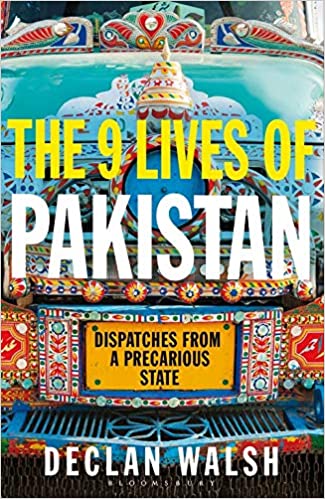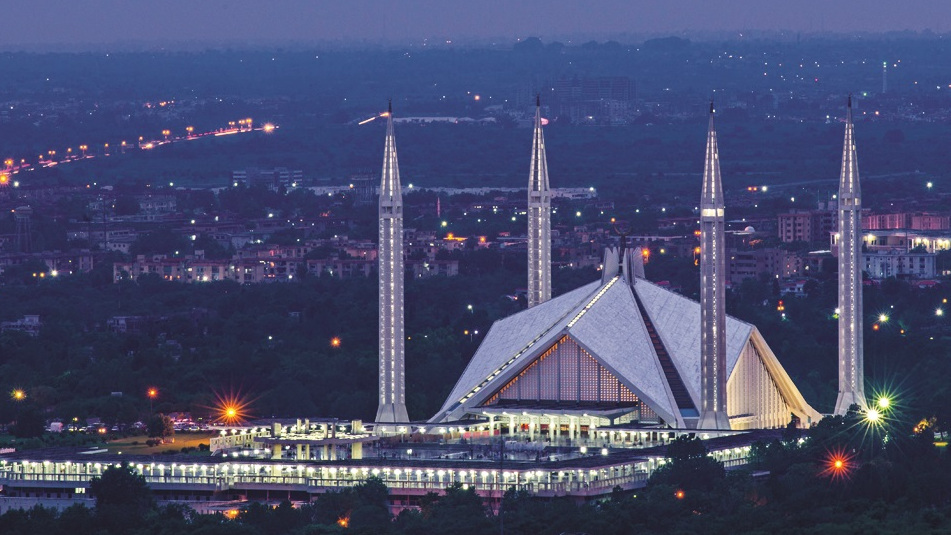Book: The Nine Lives of Pakistan: Dispatches from a Divided Nation
Author: Declan Walsh
Publisher: Bloomsbury
Price: Rs 799
South Asia is a land of contradictions; Pakistan even more so. And that is essentially what Declan Walsh — Pakistan correspondent for nine years across two major newspapers — has managed to capture in his book: a country hurtling from one crisis to another, perpetually living on the brink of implosion.
In Pakistan through some of its most tumultuous years — 2004-2013, when the country began getting the blowback of providing safe havens to terrorists from all parts of the world — Walsh makes full disclosure at the outset itself that “I had grown to love Pakistan... a country of hidden delights, endearing absurdities...” But his “dispatches from a divided nation” — first as The Guardian’s Pakistan correspondent and then The New York Times’ — by no means gloss over Pakistan’s many warts and flawed policies.
What comes across is the dilemma of the average Pakistani in a country that has been living a double life for decades; marrying permissiveness with militant piety and housing the “university of jihad’’ while facilitating the US-led War on Terror. A country where technically there is prohibition, but the author is offered a beer at 9.30 am; where every first-timer goes in expecting women to be in burkhas only to find a number of them in high-end fashion wear living it up in what Walsh calls a “Gatsby-like bubble”; and where India is the enemy but many things Indian, particularly Bollywood, are a staple.
An engaging book, The Nine Lives of Pakistan is much more than a reporter’s diary. Through the lives of nine Pakistanis — eight of whom he met during his nine years, the ninth being Pakistan’s founding father, Muhammad Ali Jinnah — Walsh provides a nuanced account of not just the person being profiled but also the issues that agitate the “country of sighs and regrets, the only I had been where some of its own citizens quietly regretted it had ever come into being”. Thereby, he covers much of the grey zone Pakistan lives in and all the provinces of the country.
Pakistan’s dreaded blasphemy law, which consumed a flamboyant governor and the lone minority community minister in the federal cabinet in a span of two months, and “the conundrum of faith and identity” in the country are examined through the life of the slain politician, Salman Taseer, in “The Good Muslim”.

The Nine Lives of Pakistan: Dispatches from a Divided Nation By Declan Walsh, Bloomsbury, Rs 799 Amazon
This apart, the pitfalls of spying is focused upon through the Frankenstein-like creator and handler of terrorists, ‘Colonel’ Imam, who dies at the hands of the monster he created; the chaos of Pakistan’s biggest city through its Dirty Harry incarnate, Chaudhry Aslam Khan; the different aspects of Pashtunwali — the Pashtun code of conduct — through a politician. It is this Pashtunwali, which includes providing shelter to a fugitive, that was exploited by terrorists to secure safe havens in the Federally Administered Tribal Areas along Pakistan’s disputed Durand Line border with Afghanistan.
In this and all other chapters, the journalist not only weaves in his meetings with the person whose life is being used as a lens to examine the larger issues plaguing the nation but also manages to not make it all about himself as is often the case when a reporter is penning a book of journalistic experience, that, too, from a region that is not exactly on the tourist circuit.
While there are those mandatory accounts of Pakistani hospitality whenever one is writing about Pakistan — he counts 12 meals a day on a trip to Lakki Marwat in the erstwhile North West Frontier Province — and also the uncomfortable experience of being propositioned, the reporter is not the story in this book except for the parts where Walsh is trying to figure out why he was expelled from the country in 2013 on the eve of national elections, the first ever instance of a democratic transition in Pakistan’s history.
Becomingly packaged in Pakistan’s famed colourful truck art, from the front jacket to the last page, Walsh, who after his expulsion went on to become NYT’s Chief Africa Correspondent, tries to present a nuanced view of a country that was home for nearly a decade and a people who welcomed him in while ranting against Western presence and influence on their land.











